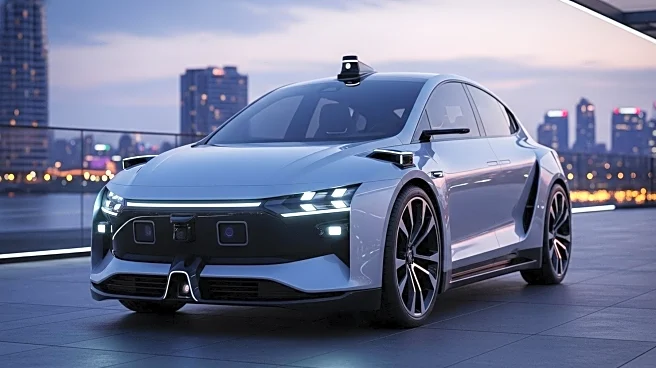What's Happening?
Uber and Momenta, a Chinese autonomous driving company, plan to test robotaxi services in Munich, Germany, beginning in 2026. This collaboration aims to integrate Momenta's advanced autonomous technology with Uber's platform, marking the first such partnership in continental Europe. Human safety operators will initially monitor the vehicles. Munich was chosen for its strong automotive ecosystem. Momenta has been testing self-driving cars in China since 2018 and is working with German automakers to deploy advanced driver assistance systems. The global robotaxi market is projected to grow significantly, driven by partnerships between AV startups and established platforms.
Why It's Important?
Uber's entry into the European autonomous vehicle market represents a strategic expansion of its services, potentially setting a precedent for other ride-hailing companies. The collaboration with Momenta highlights the importance of partnerships in advancing autonomous technology and scaling operations. As the robotaxi market grows, competition among companies like Uber, Lyft, and others will intensify, influencing the development of autonomous mobility services. Successful integration of AV technology into existing platforms could offer a competitive advantage, impacting the future of transportation and urban planning.
What's Next?
The testing phase in Munich will be crucial for Uber and Momenta to refine their technology and address regulatory challenges. The success of this partnership could lead to further expansion into other European cities. As the robotaxi industry evolves, companies will need to navigate safety concerns, regulatory hurdles, and technological advancements to maintain their competitive edge. The outcome of these tests may influence public policy and the adoption of autonomous vehicles in Europe and beyond.









